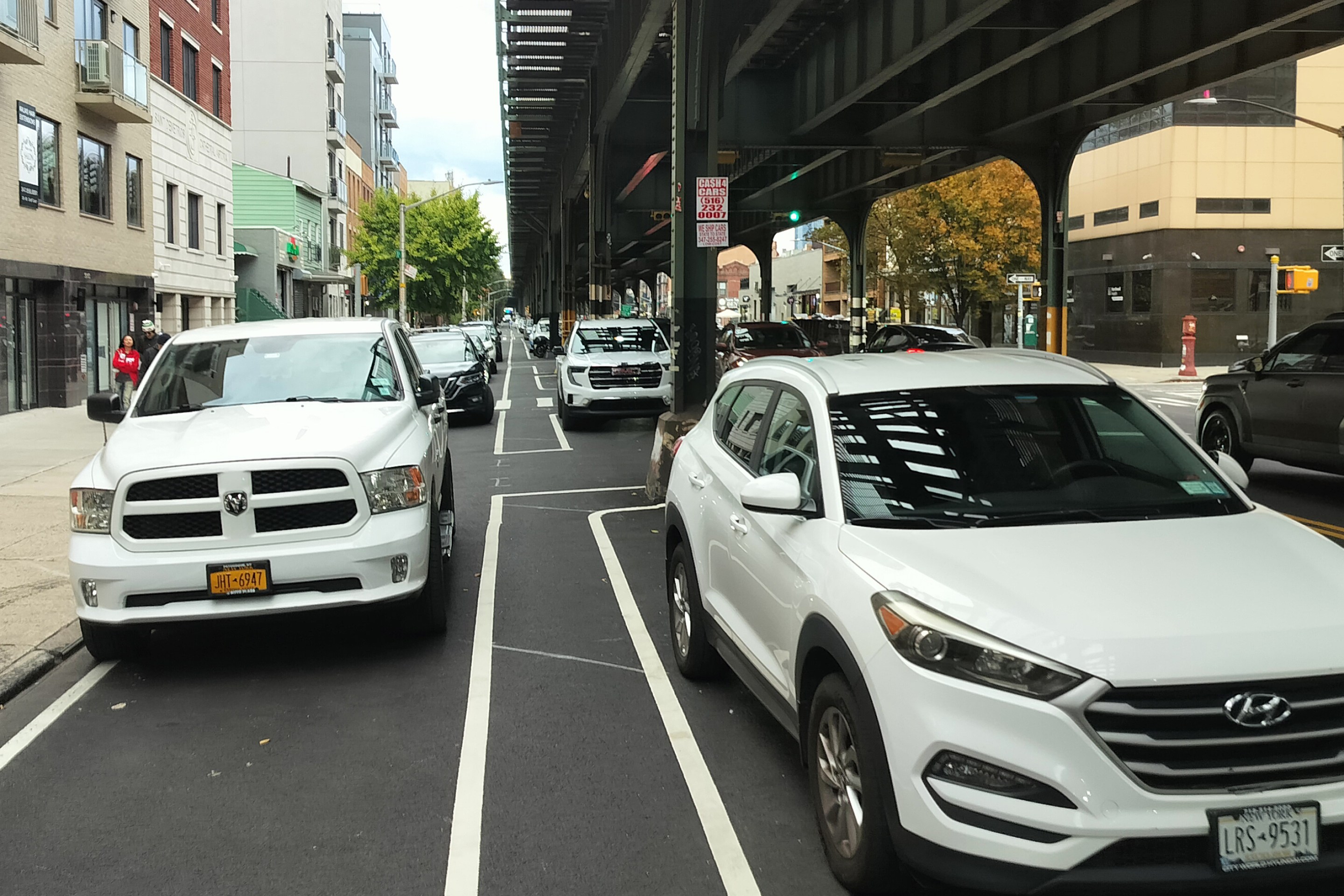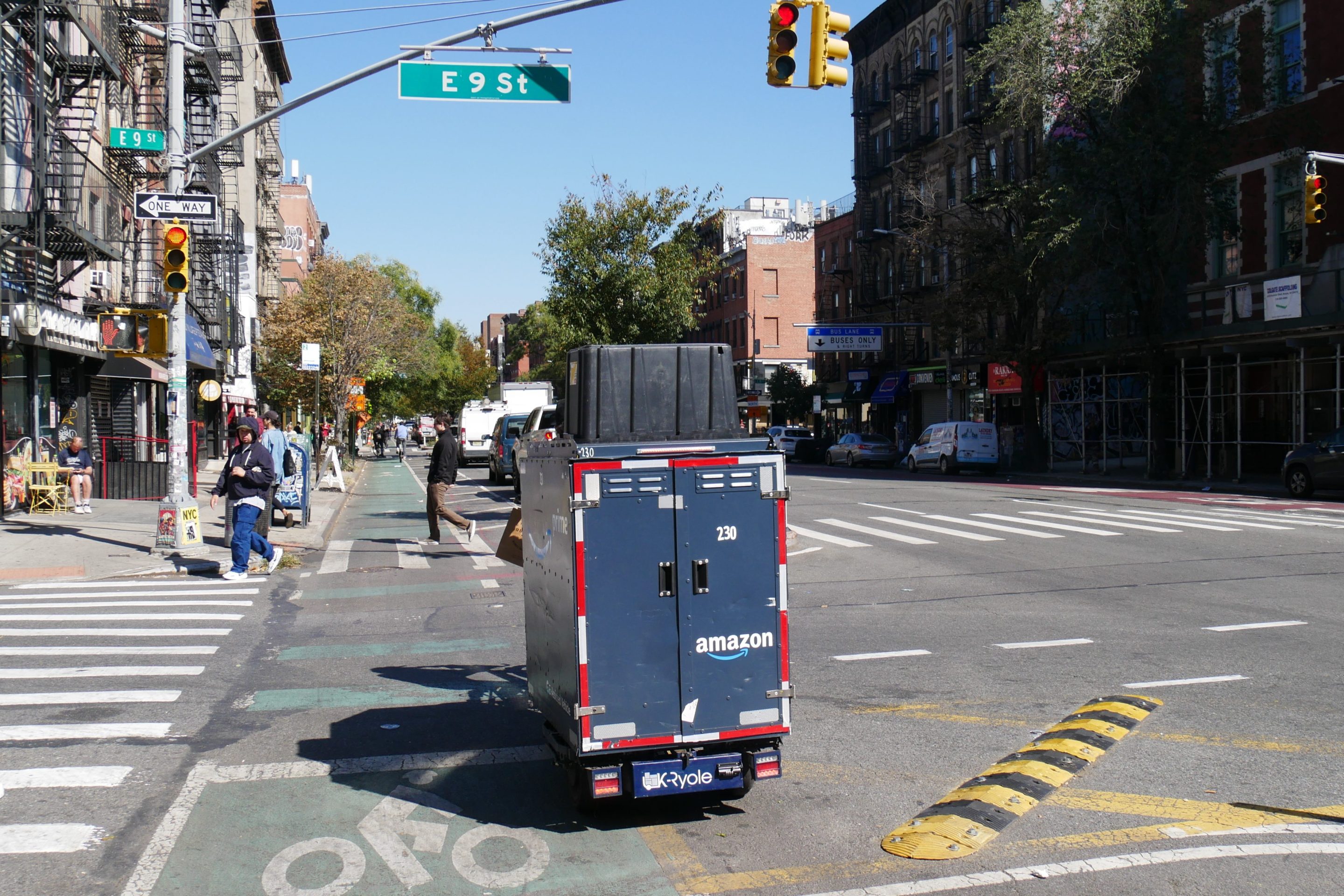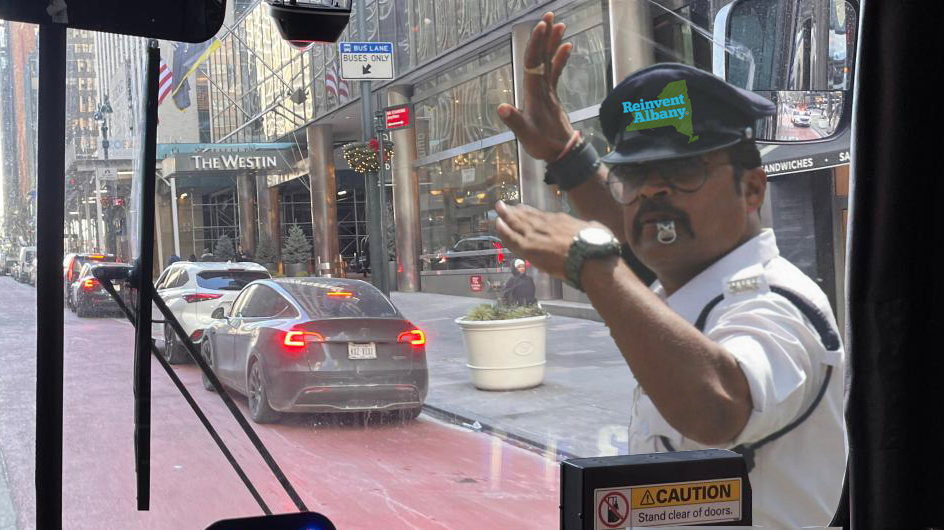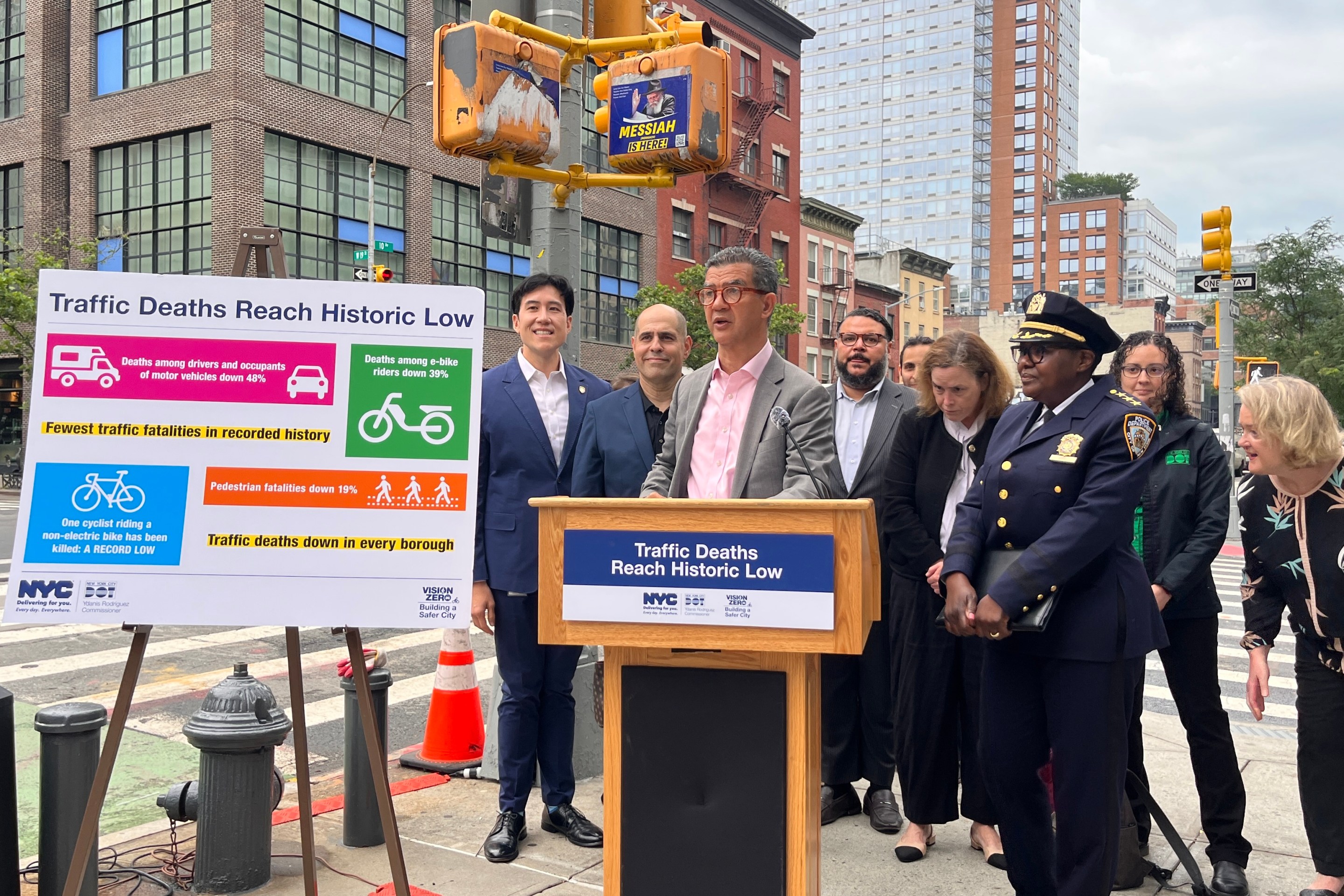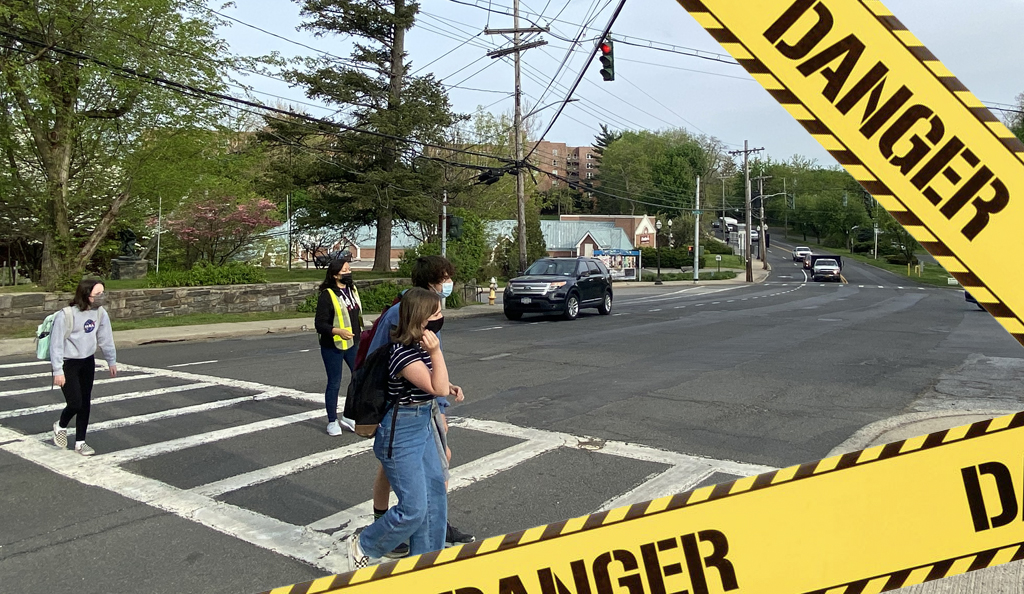Chances to improve service on New York City's dedicated bus lanes appeared to narrow yesterday, when Assembly Speaker Sheldon Silver and his Democratic conference rejected bus lane enforcement cameras in the chamber's draft budget. Camera enforcement is one of the linchpins in the city's strategy to put the "rapid" in Bus Rapid Transit. Without it, bus riders will remain stymied by traffic, even on Select Bus Service routes.
 Shelly Silver let better bus service fall by the wayside in the Assembly's budget proposal.
Shelly Silver let better bus service fall by the wayside in the Assembly's budget proposal.New York has the nation's slowest bus service and its biggest bus fleet, serving more than two and a half million daily riders. The city's police force doesn't have the manpower to keep bus lanes clear, and it's only getting smaller. Camera enforcement, which has made service faster and more reliable in London by cutting violations 60 percent, has proven capable of solving some of the problems that plague New York's bus system.
"Right now, bus lanes are routinely violated by many vehicles, resulting in chronic delays for hundreds of thousands of bus riders," said Gene Russianoff, staff attorney for the Straphangers Campaign. "Using enforcement cameras in city bus lanes could turn that around, making bus service more reliable and helping to reduce congestion."
Two years ago, bus cams died in the Assembly transportation committee, chaired by Rochester representative David Gantt. This time around, they were stripped out in the Assembly's opaque budget process. One advocate in Albany told Streetsblog that rank-and-file Assembly members
were unaware that the bus cam provisions had been slashed from the
budget resolution as late as yesterday afternoon, hours before the resolution was unveiled and voted on.
Gantt has no veto power in the Assembly budget process, which the Speaker himself exerts enormous influence over. The budget resolution only had to clear a vote in the Assembly Ways and Means Committee, chaired by Upper Manhattan representative Denny Farrell, before the Speaker brought it to the full floor last night. "It's our view that
Silver maintains pretty tight control over the budget process," said Laura Seago, a research associate at the Brennan Center for Justice and co-author of the 2009 report on Albany dysfunction, "Still Broken" [PDF].
Neither Silver nor Gantt's office has returned Streetsblog's requests for comment at this time.
Restoring the bus cam program in the final budget now hinges on
negotiations between the Assembly, the State Senate, and the governor's
office. Those talks, which happen behind closed doors, are expected to heat up sometime after the official budget deadline of April 1.
In the Senate, which included a watered down version of the governor's original bus camera proposal in its budget resolution, several representatives say they'll be pushing to restore the full bus cam language. Senator Eric Adams, whose Brooklyn district would be served by Select Bus Service slated for the Nostrand Avenue corridor, said he believes camera enforcement is a critical tool to keep buses moving. He expressed surprise that the Assembly had stripped bus cams from its budget and said he'd ask Senate negotiators to make them a high priority. "The resolution is just phase one," he said. "Now we're going to start drilling down on the issues that matter to us."
Senators Velmanette Montgomery and Liz Krueger will also be advocating for camera enforcement on Select Bus Service routes. "The people who live in the neighborhoods that the senator represents
are going to benefit from SBS," said Montgomery's staff counsel, Juan Martinez. "If SBS can't operate without camera
enforcement, then she's for camera enforcement."
In a letter to Senate transportation committee chair Martin Malave Dilan, Krueger urged the adoption of a robust bus cam program, which she called "altogether imperative for this system to succeed."
On the Assembly side, Manhattan rep Jonathan Bing, who sponsored the bus cam legislation that Gantt shot down two years ago, said he's organizing a contingent of legislators to restore bus cameras. He urged Streetsblog readers "to contact their legislators to encourage the leadership to include this in the final budget.”
